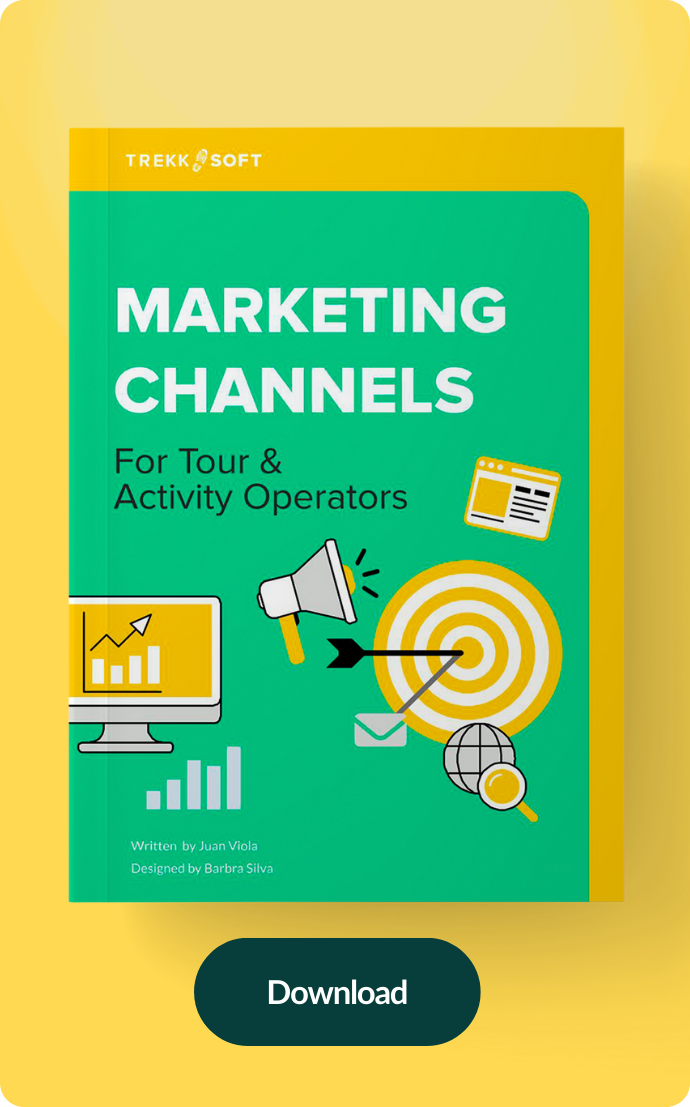During the high season, bookings skyrocket. It's a busy time, perfect for maximizing revenue and creating unforgettable experiences. However, to ensure a smooth season, it is important to be prepared for a variety of scenarios, including the possibility of cancellations.
Cancellations, though unavoidable, can greatly affect your revenue during peak periods. So, how can you proactively reduce their impact?
Over the past few years, the tourism industry has been impacted by cancellations due to the pandemic. According to an Arival report, bookings for tours and activities dropped by over 85% in 2020. This dramatic shift caused the industry to update its cancellation regulations. Studies in the hotel industry have shown that the average cancellation rate for direct bookings is 10-15%, while the rates in OTAs are about average at 26%.
By implementing systematic strategies, you can reduce cancellations during the high season and build a more resilient business against future disruptions. Here are four key strategies to consider:
1. Establish a solid cancellation policy
A clear and well-defined cancellation policy is the key to managing cancellations effectively. It sets expectations for both you and your customers, minimizes confusion, and protects your revenue.
Some key considerations for creating a solid policy are:
-
Tiered cancellation fees: Implement a tiered cancellation fee structure based on the timeframe leading up to the tour date. For example, a smaller cancellation fee might apply for cancellations made well in advance, while a more significant fee could be in place for last-minute cancellations. This incentivizes early planning and mitigates financial losses for late cancellations.
-
Clearly define deadlines associated with each cancellation fee tier. This will prevent misinterpretation and help customers understand the financial implications of cancelling at different stages.
Policy visibility is key
Once you've established your cancellation policy, ensure it's accessible to your customers. Here are some effective ways to share it:
-
Display it on your website, including your booking page, FAQs section, and any promotional materials.
-
Include it in booking confirmations. Send automated emails clearly stating your cancellation policy whenever a booking is made.
-
Offer it as a downloadable document: Provide a PDF version of your policy for customers who prefer to keep a copy on file.
For more information and best practices for building your cancellation policy, check managing cancellations and refunds for tours and activities.
2. Enhance pre-tour communication
Effective communication goes a long way in building trust and reducing concerns that might lead to cancellations. Here's how to enhance pre-tour communication:
-
Proactive booking confirmations and reminders: Send prompt booking confirmation emails with all the essential details, such as tour date, meeting point, what to bring, and a clear restatement of your cancellation policy. Follow up with gentle reminder emails closer to the tour date.
-
Informative content: Go beyond essential confirmations and provide valuable pre-tour information. You could include weather forecasts for the tour location, frequently asked questions about the tour, and packing recommendations. This empowers your customers and reduces the chances of them cancelling due to last-minute uncertainties.
-
Open communication channels: Ensure seamless communication by offering multiple ways for customers to reach out with questions or concerns. This could include email, phone, SMS, or even platforms like WhatsApp. Open communication fosters trust and allows you to address any anxieties before they escalate into cancellations.
3. Encourage flexible rebooking options
Life happens, and sometimes unexpected events occur, and customers will need to change plans. Offering flexible rebooking options shows your customers that you understand and fosters a sense of goodwill.
Here's how to make rebooking a win-win situation.
-
Offer rebooking alternatives: Consider offering rebooking options within a reasonable timeframe. This allows customers to reschedule their tour for a later date if needed. Define the timeframe within which rebooking is possible based on your availability and seasonality.
-
Vouchers/credit alternatives: If rebooking isn't possible, consider offering vouchers or credits for future tours. This helps retain the customer's interest and provides them with an incentive to book with you again. Be aware of regional regulations regarding voucher validity. For example, the EU's Consumer Protection (Gift Vouchers) Act 2019 mandates that vouchers issued by EU companies must be valid for at least 5 years.
4. Automate your processes
To handle bookings and cancellations more efficiently, consider automating these processes, which can significantly reduce both their frequency and their impact. Automation simplifies operations for you and enhances the customer experience.
Here are the advantages of automating your cancellation processes:
-
Streamlined operations: Traditionally, managing cancellations has been manual and time-consuming, with staff needing to manage communications, process refunds, and rebook appointments. Automation allows for these tasks to be handled by systems, minimizing manual involvement and reducing the chance of errors.
-
Improved customer communication: Automated systems can send notifications and reminders, ensuring that customers are well-informed about their bookings. This proactive communication can decrease the likelihood of last-minute cancellations due to customers forgetting or not understanding important details.
-
Increased efficiency: With automation, tasks like processing refunds and updating available slots for rebooking become seamless. This not only saves time but also improves customer satisfaction as they experience a more efficient, hassle-free process.
Managing the high season with TrekkSoft
Efficiently managing cancellations during busy seasons is crucial for keeping your team organized, ensuring customers remain satisfied, and maintaining a strong flow of revenue. At TrekkSoft, we understand the complexities of handling peak season demands and have created specialized tools to make this process smoother.
With TrekkSoft, the hassle of processing cancellations, issuing refunds, rebooking guests, and sending out automated messages becomes effortless, significantly enhancing your operational efficiency.
We encourage you to see for yourself how our booking system can transform your tour and activity operations. Our team is excited to show you how TrekkSoft can support you in not just managing, but excelling during the busy season, ensuring comprehensive management of bookings and guest interactions.


.png)

